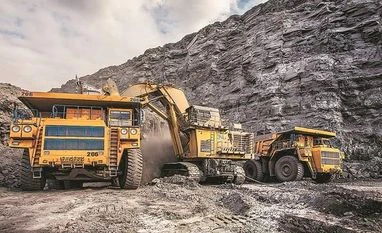The government will now prioritise getting contracts for coking coal imports at competitive prices instead of trying to buy coal mines, as it was planning earlier.
“The plan is to not acquire assets but only freeze orders in advance to get coal at competitive prices,” said Union Coal Minister Pralhad Joshi, on the sidelines of the 8th Asian Mining Congress and Exhibition.
Coal India Chairman Anil Kumar Jha said while getting the contracts is a priority, the company will consider picking up stakes in coking coal companies instead of an outright purchase.
Till now, Coal India has been considering whether to buy coking coal mines or pick up stakes in companies in Australia, Canada, the US and Russia. It is also about to float a tender to select merchant bankers who will guide Coal India through the process.
Joshi said the decision was been taken to protect the forex outflow, which stood at Rs 2.71 trillion last year. In the same year, India had imported 235 million tonnes (mt) of coal; 50 mt of it was coking coal.
Coking coal is scarce in India and is a key ingredient to make steel. With the government keen to develop infrastructure, steel availability and the cost of production — which will impact prices — is crucial.
Around 10-15 per cent of the 55-60 mt demand for coking coal in India is met by domestic supply, while the rest is catered to via imports, from Australia, the US, Canada and other countries.
Estimates suggest that by 2030, the steel sector will be demanding 180 mt of coking coal when steel production is targeted to reach 300 mt.
The US holds the largest recoverable coal reserves in the world at 230 billion tonnes (bt), while production hovers at about 685 mt every year. Russia, which holds the world’s second-largest reserves at 160 bt, produced 433 mt of coal in 2018.
These considerations led Coal India to narrow down on these countries. A memorandum of understanding was also signed between Russia and Coal India.
The firm was expected to sign definitive agreements with Australia and Canada by the end of this financial year.
Apart from Russia, this company had nearly narrowed down on an Australian company, where picking up a 20-25 per cent equity stake was considered for an offtake commitment and an ad hoc budget was also allocated. This Australian company has six licences for coal mining at the application stage and one licence has been granted to it by the authorities.
Joshi said there was no chance of foreign direct investment in Coal India though the government has opened up the sector.
Foreign portfolio investment (FPI) in this company has been on the rise. While FPIs had a 5.68 per cent stake in Coal India in September 2018, the same rose to 8.67 per cent at the end of the second quarter.
Unlock 30+ premium stories daily hand-picked by our editors, across devices on browser and app.
Pick your 5 favourite companies, get a daily email with all news updates on them.
Full access to our intuitive epaper - clip, save, share articles from any device; newspaper archives from 2006.
Preferential invites to Business Standard events.
Curated newsletters on markets, personal finance, policy & politics, start-ups, technology, and more.
)